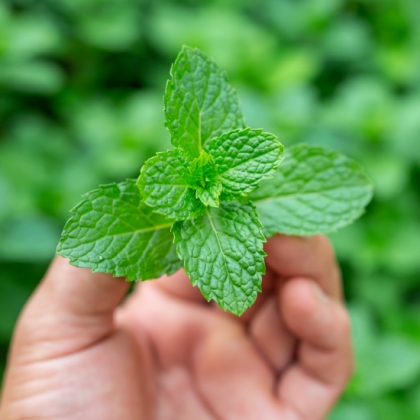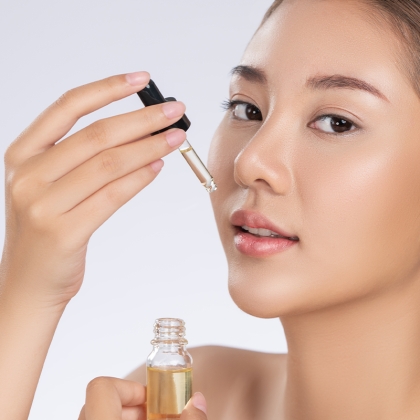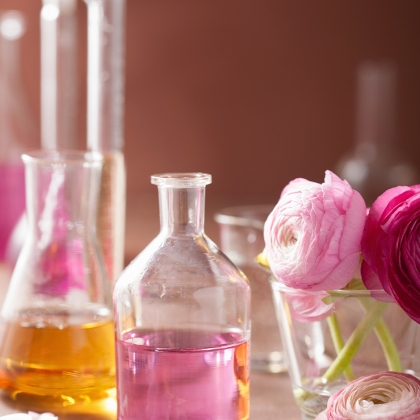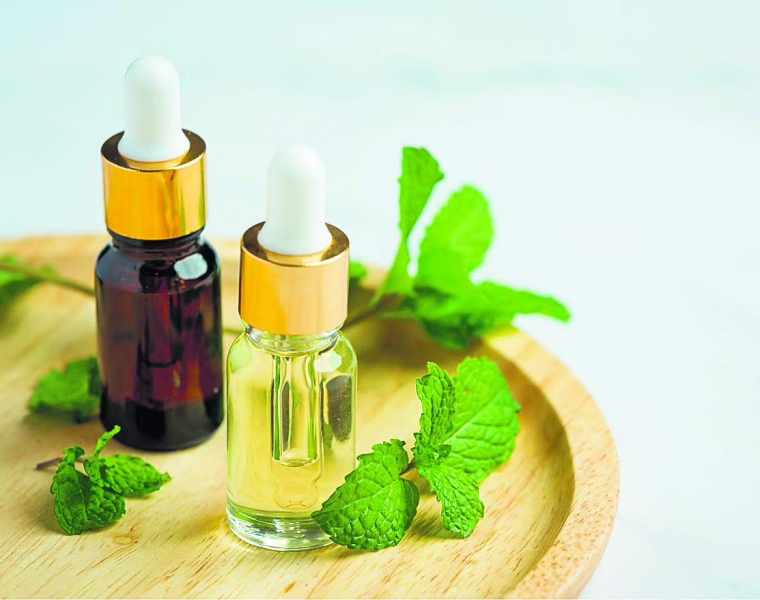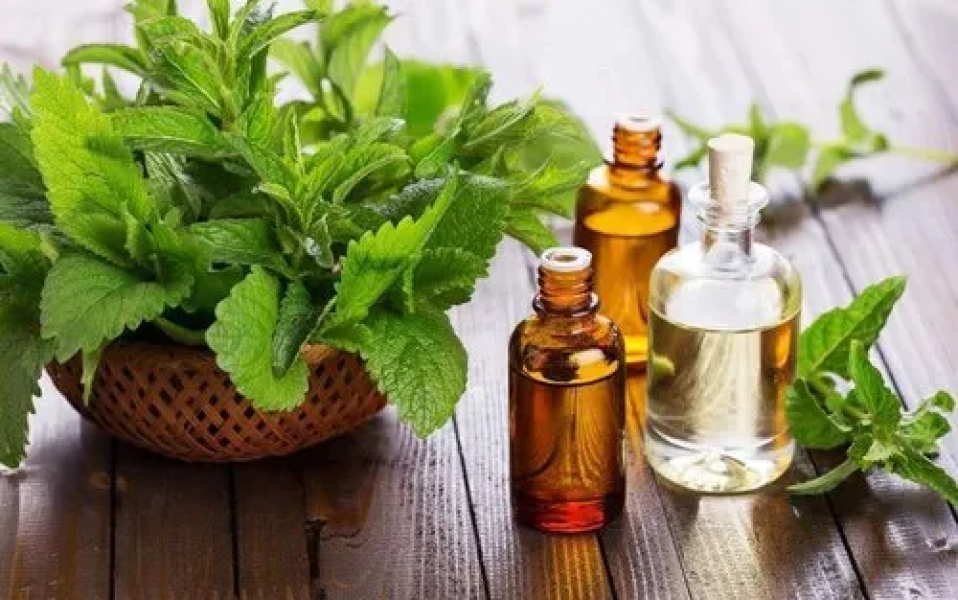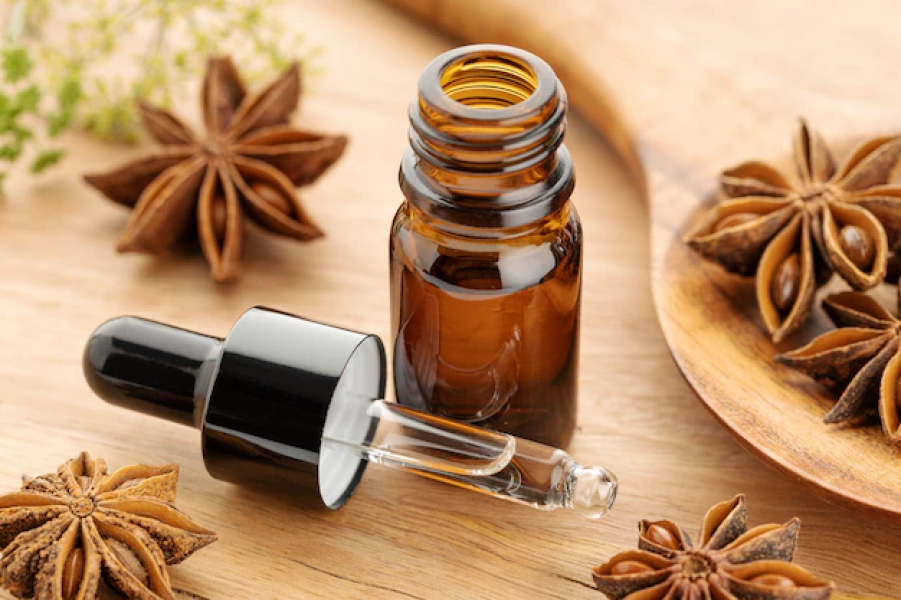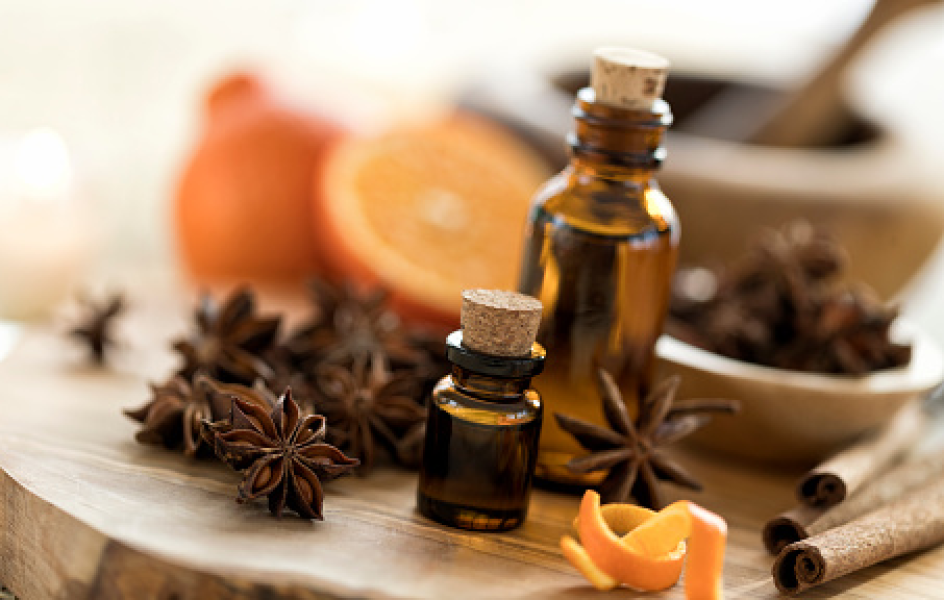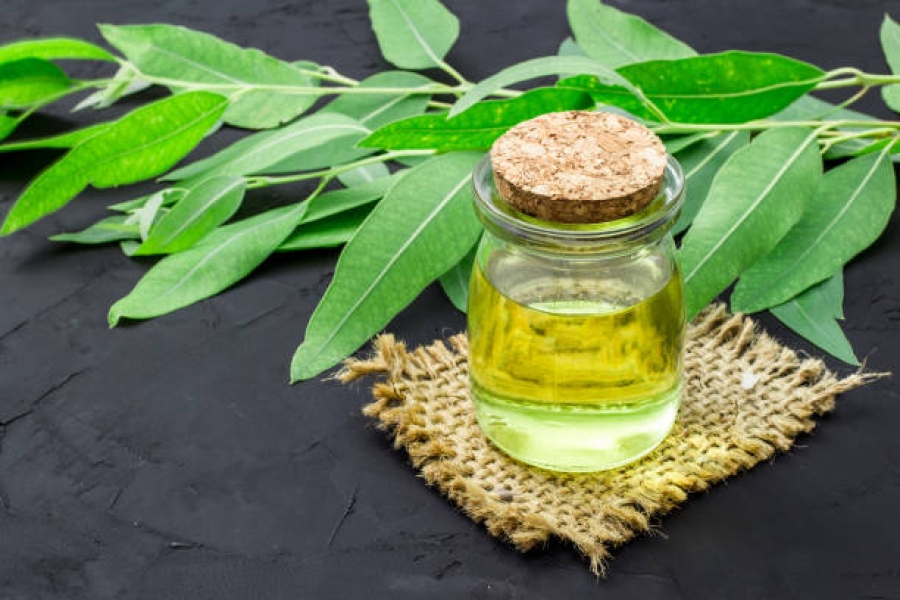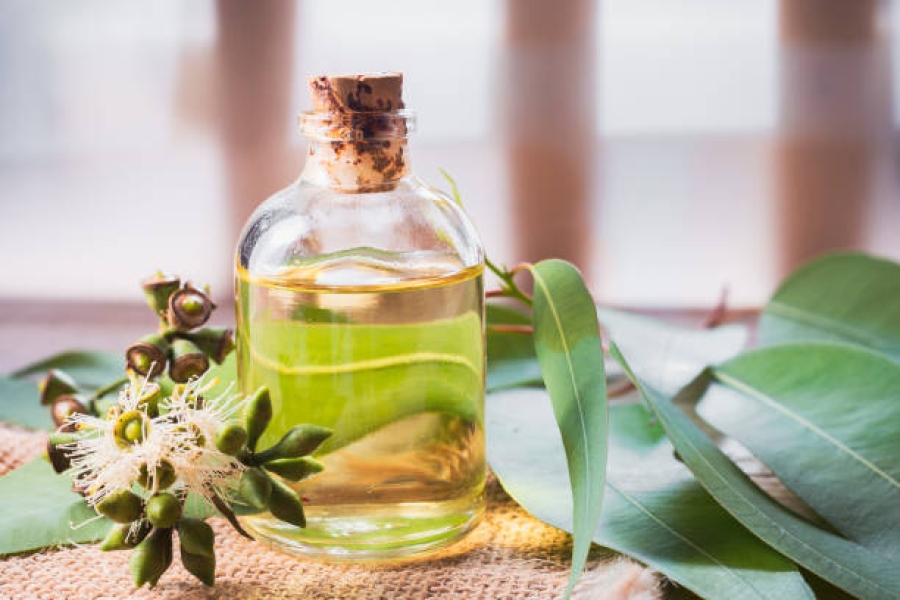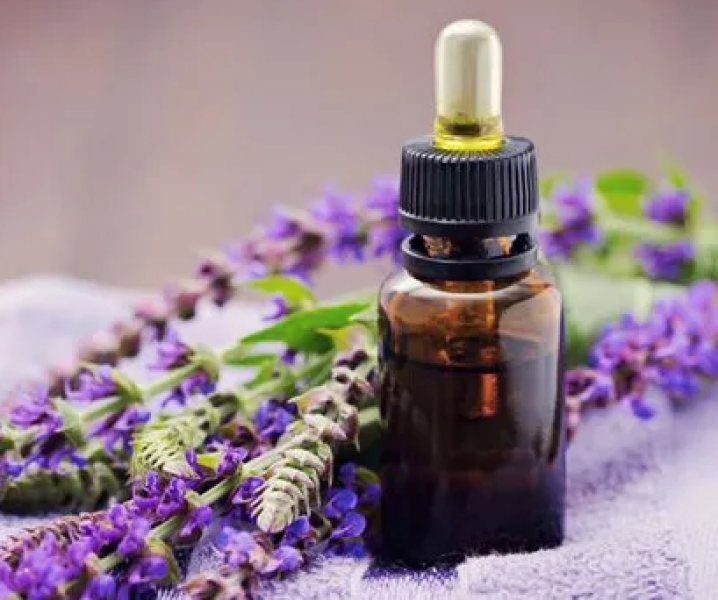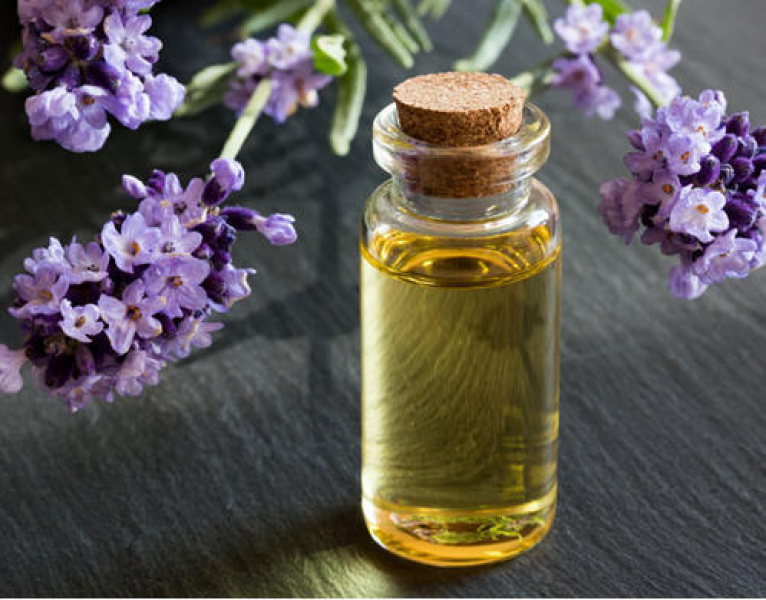Patchouli Oil
The herb patchouli, scientifically known as Pogostemon cablin, is highly magical in nature and originates from regions of Southeast Asia. It grows best under warm and tropical weather conditions. Currently, it is widely grown in countries like Indonesia, China, India and Malaysia mainly for its valuable essential oil.
Origins and Cultivation:
Patchouli now thrives in China, India, and parts of western Africa.
As a tropical species, it flourishes in hot environments but prefers indirect sunlight.
Resilient and drought-tolerant, it bounces back swiftly after withering.
Historical Significance:
Imagine Chinese silk traders from the 18th century, keeping dried patchouli leaves with their valuable fabrics to prevent moths. Smart, huh?
Europeans associated patchouli’s strong aroma with exotic luxury goods pouring in from the East.
Queen Victoria herself favored patchouli-scented linen boxes—a symbol of elegance.
Patchouli Today:
The scent of patchouli, which is impossible to forget, continues to be loved around the world. It's not only about remembering; it's an everlasting essence that attracts our senses. We welcome it at Norex Flavours in this way:
Perfume: In perfumes, soaps, lotions and shampoos, they use our patchouli extract for adding to the smell - it's something that keeps on.
Industrial Products: From air fresheners to laundry detergents, patchouli’s aroma infuses everyday essentials.
Health Benefits: Beyond fragrance, patchouli essential oil soothes and rejuvenates.
Quality and Purity:
We, at Norex, are glad to provide you with the best quality patchouli leaves. Our oil is steam-distilled, and it keeps the true essence of fresh plants. Make a blend with bergamot, geranium, clary sage along myrrh or lavender for a balanced effect. Remember that patchouli is not only about the smell but also an experience in time; it's like passing down a fragrant heritage from one generation to another.
Our Premium Patchouli Essential Oil:
Even though Norex boasts a variety of superior patchouli essential oil options, it's true that there is an entire universe of patchouli. Here is a simple explanation for some other terms you could come across:
Synthetic Patchouli:
It is a form of patchouli oil made in the lab, which copies some important smell components. Normally, it costs less compared to essential oils but does not have all the complex characteristics and possible therapeutic effects that natural oils possess.
Fragrance Grade Patchouli:
This says that the patchouli oil is for making perfumes, soaps and other things with scent. It could be a natural extract, but the purpose is to get a certain smell not always focusing on its healing features.
Food Grade Patchouli:
In very weak mixtures, patchouli oil might be used as a flavoring for foods and drinks. This oil type must go through severe tests to guarantee it's safe for consuming. Norex doesn't provide food-grade patchouli oil at this moment.
Therapeutic Grade Patchouli:
Frequently, in the industry of essential oils, this phrase is utilized to signify a product that satisfies certain quality criteria and is appropriate for aromatherapy as well as applying it on skin (when properly diluted). At Norex, we give importance to quality and purity in all our essential oils including different types of patchouli.
Harvesting and Distillation Process:
The process of obtaining patchouli oil starts with growing the patchouli plant, which is a leafy herb. This plant commonly thrives in tropical areas of Asia. The key steps to harvest and distill patchouli oil are:
Cultivation and Harvesting
Patchouli plants have a fondness for hot and damp conditions, often found nearby rice fields or open spaces. We commonly propagate these plants by placing cuttings from the mother plant into water. Once they start to grow, we must ensure they receive sufficient sunlight and water. The leaves that receive a greater amount of sunlight appear thicker and smaller, possessing increased quantity of essential oils. Conversely, those leaves which obtain less sunlight are bigger yet contain less oil.
When the plants are fully grown, people take away the top 3-4 pairs of leaves. Some individuals believe that if you distill fresh leaves which were just harvested instead of dried ones, it makes oil of superior quality with a livelier smell.
Steam Distillation
Following the harvest, the leaves of patchouli get distilled with steam to acquire its essential oil. This procedure entails putting the leaves within a distillation still and subjecting them to steam. The essential oil transforms into vapor because of the steam, detaching from plant substance. The vapor moves through a condenser, getting cooled and returning to liquid state.
The last patchouli oil color can be different, showing light yellow to deep amber or brown shades. The distillation process also affects its thickness and hue. In case this method is carried out in a stainless-steel vat, it normally results in thinner oils that are lighter in color too when compared with those distilled using cast iron vats; these produce thicker and darker colored oils as well typically. However, the overall aroma profile remains similar between the two types of oil.
The patchouli oil we acquire by steam distillation typically accounts for roughly 2-3% of the entire mass from dried leaves. This oil improves in quality and scent with age, developing a fuller and more balanced aroma.
Aroma Profile and Notes:
The smell of patchouli oil is special because it has an earthy, wood-like scent that can be both deep and complicated. Here's a breakdown of its smell:
Earthy Notes
Patchouli oil carries a powerful, earth-like touch similar to the smell of soil after rain. This earthiness is a key characteristic of the oil and frequently described as strong, rich and deep. The scent is much like going for a walk in forest following big rainfall where you can breathe in damp earth along with mossy fragrance.
Woody Notes
The smell of patchouli oil, with its woody hints, reminds me of old wood like cedar or oak. This aspect brings a feeling of maturity and profundity to the oil's scent. It can be compared to the aroma one might detect from a long-used wooden chest or strong table made from sturdy wood. The fragrance is warm and soothing, making you feel secure and dependable.
Sweet Notes
Patchouli oil also holds a delicate sweetness, contributing a layer of intricacy to its general fragrance. The sweetness is frequently portrayed as mild and comforting scent similar to that of new blossoms or sweetly earthy perfume. It's a gentle, soothing touch that helps harmonize the more robust, earthly components within the oil.
Musky Notes
The characteristic scent in patchouli oil, is what we refer to as musky notes. It's similar to the smell you experience on a hot and wet day, where there are many flowers blossoming and also an earthy muskiness from soil. This particular aspect of its fragrance is often characterized as being rich and alluring. Hence, many people like to use it for making perfumes or fragrances because they find this feature very attractive.
How These Notes Combine
When all these music notes mix up, patchouli oil makes a strong, complicated smell that gives you joy and keeps you steady. It's like getting a warm hug during chilly weather or smelling something familiar to feel calm and balanced. The earthy notes make you solid, the woody notes keep you steady, the sweet ones relax and the musky ones give an attractive feeling of allure and sensuality.
Therapeutic Benefits of Patchouli Oil
Patchouli oil is distinguished by its many healing powers that can help both the mind and body. Let's explore the specific areas where patchouli oil excels:
Relaxation and Mood Enhancement
The smell of patchouli oil is very beneficial because it helps to calm and ground you. The adaptogenic feature of this oil assists in balancing serotonin, the stress hormone that may lessen symptoms like feeling agitated or restless due to anxiety . Using patchouli oil by diffusing or through aromatherapy aids in creating a calm environment that assists people to find their center.
Additionally, patchouli oil is viewed as having properties akin to an antidepressant. The distinctive fragrance -- strong and earthy -- is thought to trigger the creation of neurotransmitters that boost mood like serotonin and dopamine which may possibly aid in improving emotional health overall . Many people find that incorporating this oil into their self-care routine can make them feel happier and more peaceful.
Skincare Benefits
Oil from the patchouli plant is a strong element for skin health and recovery. It has anti-inflammatory features that could assist in calming issues like dry or irritated skin conditions such as eczema and dermatitis . Also, this oil shows antibacterial effects so it might help with acne management by keeping under control the bacteria causing acne.
In terms of the good sides, patchouli oil could be effective not just for skin issues but also in lessening visible signs associated with aging. This is because the oil contains many antioxidants that may protect our skin from damage caused by free radicals--these substances are connected to wrinkles and age spots. Additionally, it's been suggested that this oil might promote collagen creation which could improve elasticity and fullness in your skin.
Hair Care
This oil could possibly assist in avoiding scalp infections, dealing with dandruff and promoting robust hair growth. By utilizing it routinely, your hair might seem polished, gentle and revitalized.
Other Therapeutic Uses
In therapy, in the past people have used patchouli oil for handling problems with breathing like colds, blockage in the sinuses and asthma because it can help cough up mucus and clear out congested areas Some studies show that it may also assist in lessening pain and inflammation. This suggests a possible use of this oil for issues such as arthritis or achy muscles
Aromatherapy with Patchouli Oil:
People have cherished it for a long time. At Norex, we give importance in providing good quality essential oils and Patchouli Oil is one of our top products. This guide will aid you in discovering the advantages and purposes of using Patchouli Oil within aromatherapy, whether beginning or desiring growth with your practice.
Diffusing Patchouli Oil is a top method to feel its calming qualities. When you utilize it in the diffuser, this oil aids in forming a peaceful and pleasant environment. Therefore, it is perfect for chilling out after an exhausting day or preparing your mind for meditation. A basic mixture of Patchouli Oil with Lavender and Bergamot can turn your area into a soothing place of peace. To get a grounding effect, mix it with Frankincense and Cedarwood. For a mood that uplifts you, combine Patchouli with Orange and Ylang Ylang to bring harmony and joy into your space. When you diffuse these blends, it not only improves the environment but also supports emotional stability as well as mental focus.
Massage with Patchouli Oil can make your relaxation time more enjoyable. If you have a special massage oil mixture, it might help to calm your body and mind for a peaceful rest. A basic recipe could be a combination of Patchouli Oil with Lavender and Chamomile oils, diluted in a carrier oil such as jojoba or sweet almond. This mix gives the healing perks of Patchouli, along with soothing impacts from Lavender and anti-inflammatory qualities obtained from Chamomile. Rubbing this combination into your skin during a massage can help relieve muscle pain while providing feelings of comfort--an excellent choice for enhancing your self-care routine.
One more wonderful method to use Patchouli Oil is by making a room spray. This can swiftly renew the air in your living quarter and make it calm. Make a mix of Patchouli Oil with Lemon, Peppermint, distilled water and some witch hazel in a squirt bottle for an enjoyable smell event. This room spray is like a breath of fresh air. It brings back life to the environment, spreading the earthy smell of Patchouli with hints of Lemon and Peppermint. Using it often helps to keep a calming and cheerful feeling in your house.
The flexibility of Patchouli Oil is not only limited to these uses. It can bring a lot of value to your aromatherapy team because of its strong and earthy smell that soothes emotions, balances feelings and improves awareness. The real secret is in trying out various mixtures while using it with diffusers, massage oils or room sprays until you find what suits you most. We strongly believe in the beneficial effects of natural products on well-being, and our Patchouli Oil from Norex is proof to this.
Skincare and Beauty Rituals with Patchouli Oil
Uncover the incredible advantages of Patchouli Oil for your skincare regimen. Here at Norex, we are thrilled to divulge how this marvelous essential oil can amplify your beauty customs. Patchouli Oil is adaptable and delivers numerous perks for your skin. Let’s explore how it can work for you.
Anti-Aging Benefits
Patchouli Oil can provide a wonderful solution for anti-aging. It promotes fresh cell development, which aids in reducing small lines and wrinkles on your skin, making it look younger. Moreover, Patchouli Oil also works effectively to tighten and tone your skin giving you a firmer appearance. Mixing Patchouli Oil into your daily moisturizer or serum is quick and simple. Blending it with a carrier oil such as rosehip or argan oil creates an easy homemade anti-aging oil. You can apply this mix to your face and neck regularly for keeping the skin fresh and youthful in appearance.
Moisturizing Properties
If you want an excellent moisturizer, select Patchouli Oil. It balances oil creation so it is good for dry as well as oily skin types. For those with dry skin, this option gives deep wetness and aids in stopping flakiness. For oily skin, it helps in controlling the production of oil that could lessen breakouts. You can simply mix some drops into your typical face cream or body lotion. Moreover, you may make a facial oil that is beneficial by blending Patchouli Oil with a carrier oil such as jojoba or sweet almond oil. You can put this mix directly on your skin for keeping moisture locked and give it a healthy, glowing appearance.
Addressing Skin Conditions
Patchouli Oil is a good choice for many kinds of skin problems. It has powers against inflammation and germs that can help with issues like acne, eczema, and dermatitis. For skin that easily gets acne, Patchouli Oil helps to lessen the swelling and prevent the growth of bacteria. This makes breakouts less often and skin becomes clearer. It also soothes angry skin and reduces redness, a benefit that is especially good for delicate skin issues like eczema. When applying Patchouli Oil on these conditions, blend it with a carrier oil and gently put onto the affected areas. You may add a few drops to enhance the power of your cleaning agent or toner.
Quality Assurance and Purity:
We are proud to say that at Norex, we make sure Patchouli Oil is pure and of top quality. Each part in our making process shows a dedication for superiority - starting from picking raw materials carefully; ending with thorough tests on every bottle to confirm they meet the high criteria set by us.
Quality Control Measures
The journey into purity starts when choosing the basic components. For instance, we get our patchouli leaves from controlled farms to make sure they are not affected by pesticides or dirt. The way we extract it is also planned in a manner that safeguards the gentle character of patchouli, avoiding any pollution which might jeopardize its quality.
After the oil has been taken out, it goes through thorough physicochemical testing. We look at certain gravity, refractive index, optical rotation and solubility in alcohol. These tests are done to make sure that each batch of oil keeps its purity and uniformity. This detailed method helps us provide Patchouli Oil that is pure and useful.
Certifications and Standards
We maintain many certifications which illustrate our commitment to quality. The ISO 9001:2015 certification shows that we are continuously meeting customer and regulatory standards. Furthermore, the ISO 14001:2015 certification underlines our dedication towards lessening environmental impact.
Our concern for the health and safety of our workers is evident from our dedication to the BS OHSAS 45001:2007 standard, guaranteeing a secure and healthy work environment. We also comply with Good Manufacturing Practices (GMP), which assure product safety and quality in all phases of production.
Regarding farming, we follow Good Agricultural and Collection Practices (GACP). These methods make sure that our patchouli is cultivated and gathered in the most favorable way for maintaining its quality and strength needed for making oil.
Food Safety Management
Our dedication to safety also includes food standards. We have FSSC 22000 v 5.1 and HACCP certifications, which emphasize our capability in recognizing and managing risks related to food safety. Moreover, we follow ISO 22000:2005 attentively to make sure that our essential oils are safe for eating.
Testing and Verification
For every set of Patchouli Oil, we carry out testing in-house as well as by another party to guarantee unbiased results. We do thorough examinations on the chemical structure, pinpointing vital elements for consistency assurance in maintaining its unique features and healing properties.
In Norex, each little bit of Patchouli Oil represents our constant devotion towards purity and standard. Our dedication is to give only the topmost quality, so that those who purchase from us get the very best essential oils on offer.
Usage Tips and Dilution Guidelines for Patchouli Oil
Using Patchouli Oil safely is very important. At Norex, we want to make sure you get the best out of our products while keeping safety in mind. Here are some simple guidelines for using Patchouli Oil effectively:
Safe Usage and Dilution Ratios
When you put Patchouli Oil on your skin, it is crucial to dilute the oil. Essential oils are highly concentrated substances and should not be applied directly onto the skin without mixing them with a carrier oil first. To make sure it's safe for your skin, mix 1-2 drops of Patchouli Oil with every teaspoon (5 ml) of carrier oil such as jojoba, sweet almond or coconut oil. This creates a safe dilution ratio of about 1-2%.
For applications on the face, you can use a lower dilution ratio of 0.5-1%. This is achieved by adding 1 drop of Patchouli Oil to every 2 teaspoons (10 ml) of carrier oil. Such mixture will be mild enough for the delicate skin on your face.
Application Methods
For utilizing Patchouli Oil, you may include it in your bath. Mix several drops of the oil with a tablespoon of carrier oil or bath gel prior to adding it into the water. This aids in spreading the oil uniformly and stops skin inflammation from happening.
Massage:
For a relaxing massage, mix the Patchouli Oil in with a carrier oil. Apply this blend onto your skin and slowly massage it in. This will help to moisturize your skin while also giving a calming effect. The soothing smell of Patchouli Oil is often used in perfumes and fragrances. It can help to make you feel relaxed and at peace.
In your home, you may utilize the diffuser method with Patchouli Oil to establish a relaxing environment. Put 3-5 drops into the diffuser containing water and savor its stabilizing scent.
Importance of Patch Testing
Patch testing is very important for you to confirm if your skin might have an adverse reaction. Before using Patchouli Oil on a bigger part of your skin, carry out patch test. Combine little quantity of the diluted oil and put it on a small area located at your inner forearm. Observe for a span of 24 hours to note if there is any redness, itching or irritation. In case your skin continues to be free from these signs then generally it is safe for you to use the oil.
In a nutshell, to use Patchouli Oil in a safe manner, it's important to dilute correctly and employ proper patch testing. At Norex, our goal is always offering top-quality Patchouli Oil along with the necessary understanding for using it safely and efficiently.
Frequently Asked Questions (FAQs) about Patchouli Oil
At Norex, we often get questions about Patchouli Oil. Here are some of the most common questions and their answers to help you understand more about this versatile essential oil.
Q1. What is Patchouli Oil and where does it come from?
Ans: Patchouli Oil is an essential oil derived from the leaves of the patchouli plant, native to tropical regions of Asia, particularly Indonesia, Philippines, Malaysia, and India. Its distinctive earthy and musky scent makes it popular in perfumery, skincare, and aromatherapy.
Q2. How can I use Patchouli Oil in my skincare routine?
Ans: Patchouli Oil offers several benefits for the skin. It can be added to facial moisturizers or serums to help reduce the appearance of wrinkles and fine lines, thanks to its regenerative properties. Dilute a few drops in a carrier oil like jojoba or almond oil and apply it to the skin to maintain moisture balance and promote a glowing complexion.
Q3. What are the benefits of using Patchouli Oil in aromatherapy?
Ans: In aromatherapy, Patchouli Oil is valued for its grounding and calming effects. It helps alleviate stress, anxiety, and insomnia. Diffuse Patchouli Oil in a room or blend it with other essential oils like lavender and bergamot to create a relaxing atmosphere.
Q4. Can Patchouli Oil help with acne-prone skin?
Ans: Yes, Patchouli Oil has anti-inflammatory and antiseptic properties that can help soothe inflammation and prevent bacterial growth on acne-prone skin. Mix a few drops with a carrier oil and apply it directly to affected areas, or add it to your facial cleanser or toner.
Q5. How should I dilute Patchouli Oil for safe use on the skin?
Ans: It's essential to dilute Patchouli Oil before applying it to the skin. Use a 1-2% dilution ratio, which means mixing 1-2 drops of Patchouli Oil with 1 teaspoon (5 ml) of carrier oil like coconut or jojoba oil. For sensitive facial skin, use a lower dilution of 0.5-1%.
Q6. Is Patchouli Oil safe to use during pregnancy?
Ans: Pregnant women should consult with a healthcare professional before using essential oils, including Patchouli Oil. While generally considered safe in low dilutions, it's essential to ensure safety during pregnancy and breastfeeding.
Q7. How can I use Patchouli Oil for hair care?
Ans: Patchouli Oil can be added to shampoo or conditioner to promote hair growth and strengthen hair follicles. Mix a few drops with your favorite hair product or dilute it in a carrier oil and massage it into the scalp.
Q8. Where can I buy high-quality Patchouli Oil?
Ans: You can purchase high-quality Patchouli Oil from reputable retailers specializing in essential oils, or directly from manufacturers like Norex. Look for oils that are 100% pure and undergo rigorous testing for quality and potency.
In conclusion, Patchouli Oil is a versatile essential oil with numerous benefits for skincare, aromatherapy, and more. Whether you're looking to improve your skin's appearance, relax your mind, or enhance your hair care routine, Patchouli Oil offers natural solutions with a distinctive aroma and therapeutic properties.
| Botanical Name | Pogostemon cablin |
| Origin | Indonesia India |
| CAS No | 8014 09 3 |
| EINECS | 282-493-4 |


